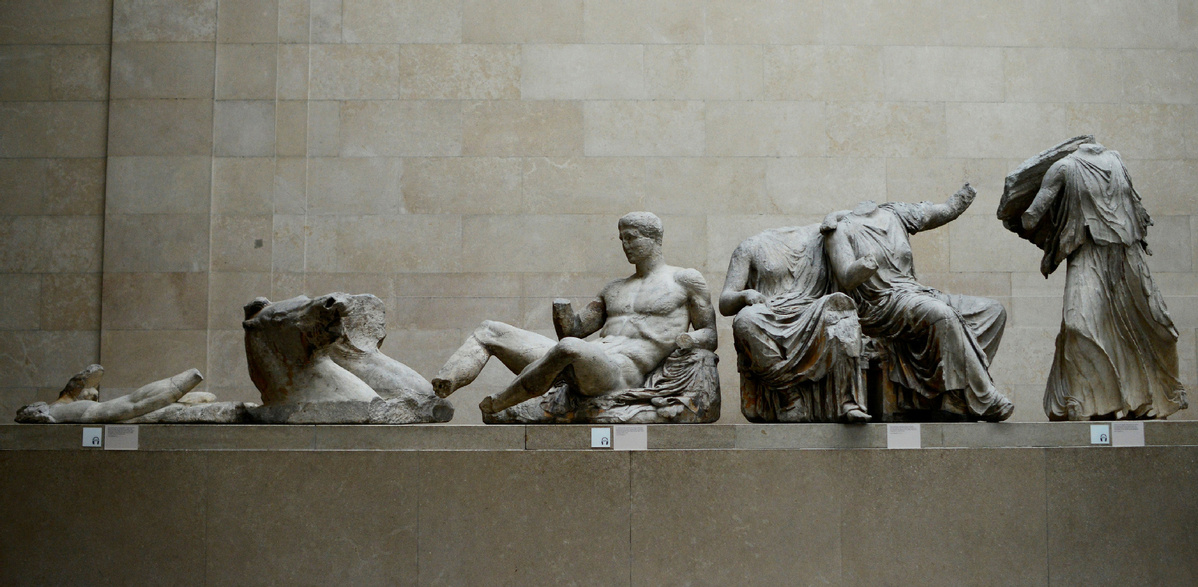Parthenon marbles must come back, insists Greece
By JONATHAN POWELL in London | China Daily Global | Updated: 2020-06-22 09:34

The Greek government has again urged the United Kingdom to return the Parthenon marbles, held in London's British Museum, as the Acropolis Museum in Athens marked its 11th anniversary and reopening after the novel coronavirus lockdown.
The acquisition of the marbles has long been a contentious issue between Greece and Britain, but in repeated polls, British people have voiced support for the repatriation of the carvings, controversially removed in 1802 by the diplomat Thomas Bruce, known as Lord Elgin.
Britain has always argued that Elgin was given permission to take them by local Ottoman rulers, and that Athens had nowhere suitable to display the collection.
"Since September 2003 when construction work for the Acropolis Museum began, Greece has systematically demanded the return of the sculptures on display in the British Museum because they are the product of theft," the country's Culture Minister Lina Mendoni told the Greek newspaper Ta Nea.
Mendoni said the Greek government will not relinquish its claim over the sculptures.
She said: "The current Greek government-like any Greek government-is not going to stop claiming the stolen sculptures which the British Museum, contrary to any moral principle, continues to hold illegally."
The marbles are a collection of classical Greek sculptures by architect and sculptor Phidias. They were originally part of the temple of the Parthenon.
"It is sad that one of the world's largest and most important museums is still governed by outdated, colonialist views," said Mendoni.
The Greek government has promised to strengthen its campaign to retrieve the artworks ahead of the country's 200-year independence celebrations next year.
Greece's Prime Minister Kyriakos Mitsotakis told the Observer newspaper that Athens was prepared to exchange other priceless heritage artifacts in return for the marbles.
Half of the 160-meter frieze is in London, with 50 meters in Athens and other pieces displayed in a total of eight other museums across Europe.
Last year, more than 14.5 million people visited the Acropolis Museum, which has become one of the most popular cultural institutions worldwide.
The Acropolis Museum has a specifically designed space to house the missing sculptures, as the country awaits their return.
British Prime Minister Boris Johnson, a classicist and renowned admirer of ancient Greece, is a supporter of the sculptures remaining in London and once asserted that they were "rescued, quite rightly, by Elgin".
























